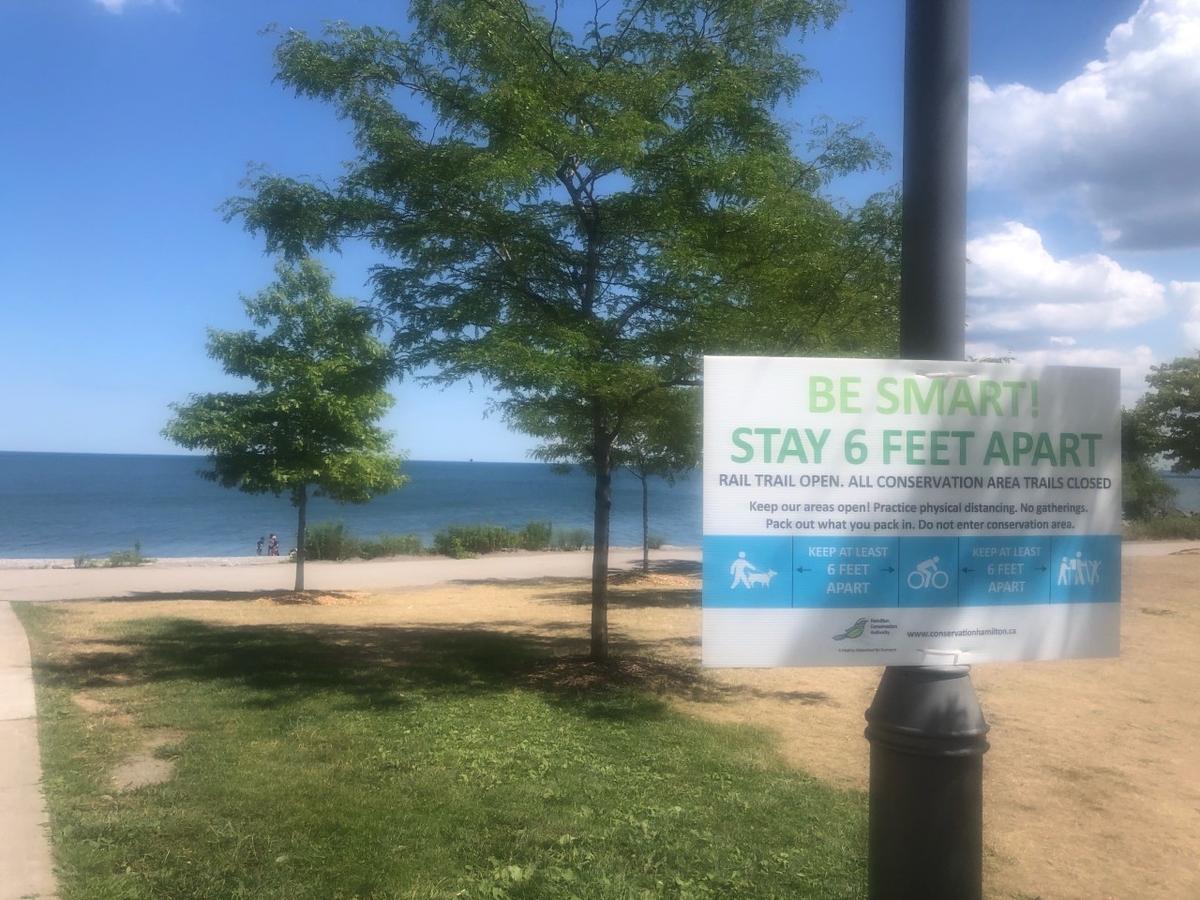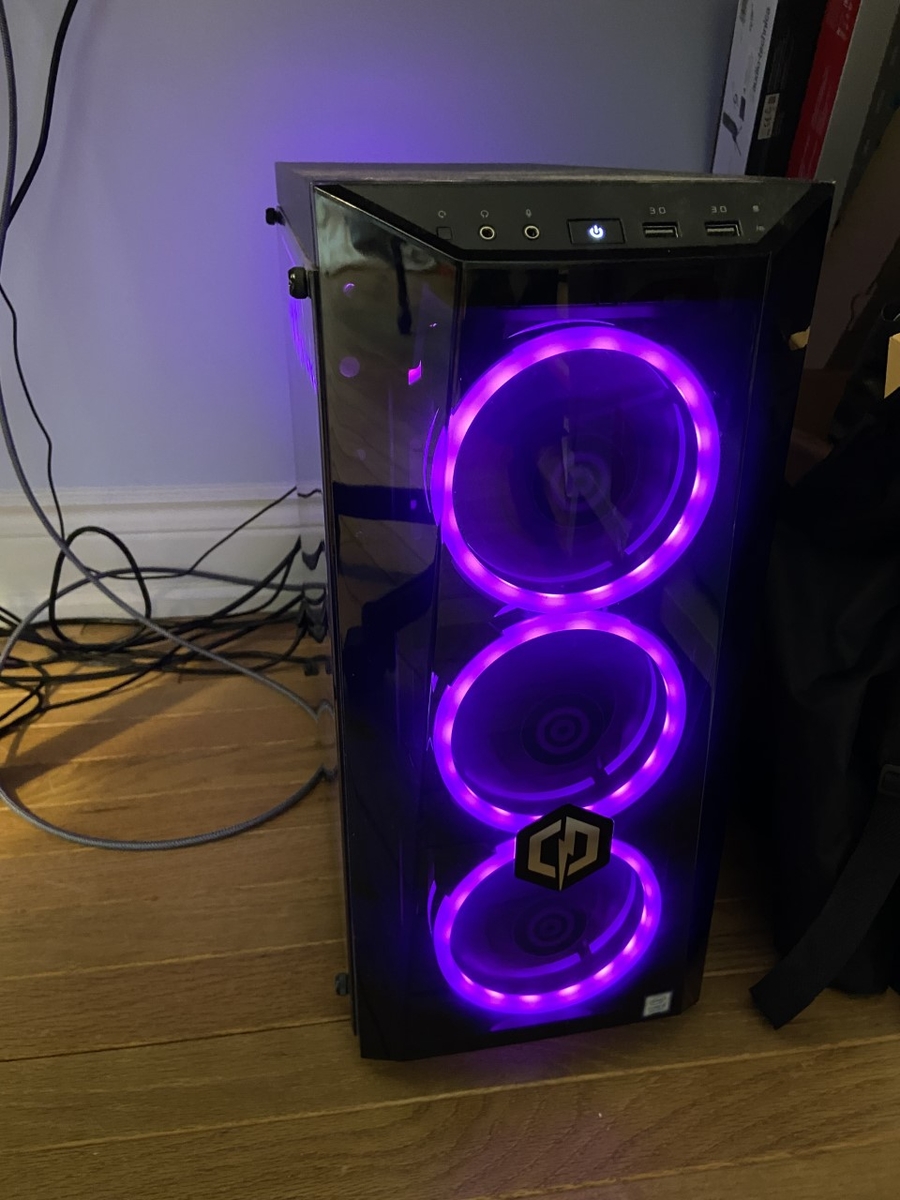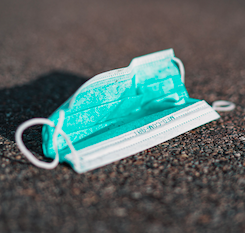STUDENT NAME: Claire Elliott
MY COVID EXPERIENCE: COVID has affected everyone differently in the last year. I have noticed the effects of the virus and everything that came along with it. My life in COVID came with different events. I transferred schools, transferred programs, lost friends, met new friends and learned new things about myself. I got laid-off and re-hired from my job at Indigo and worked an entirely new job at the LCBO. I spent my time playing video games, making bread, spending time with family, and binge-watching 'That's 70s Show,' and too many true crime documentaries to count on my hands. My mental health went on a rollercoaster, between anxiety, social and general, burnout, and eating issues: this year was a whirlwind. But COVID also allowed me to focus on myself, grow and learn from these mental health issues and help myself in bad times. I am more confident about who I am as a person and how I can contribute to society. I am now partially and will be fully vaccinated after this class is over at the end of June 2021, and I am confident with getting back to how things were before. Some things will take time to get back to normal, but slowly but surely, we will get there.
|
OBJECT IMAGE |
OBJECT DESCRIPTION AND RELATIONSHIP TO COVID-19: This image represents what I was able to achieve this year, self-discovery. The reason I chose to include this photograph is that I came out as bisexual during the pandemic. Covid has been an eventful experience, providing many with more time than anyone ever thought possible. I had many extra hours to put time and effort into figuring out who I was. The emotions that this photograph evokes are happiness and stress. The photo evokes happiness because I am beyond happy that I have come out and had family and friends who support me and love me for me. It evokes happiness because I can be myself in every aspect of my life. The photograph evokes stress because of the stress that came with coming out. It is a very stressful experience when you come out to the family because you don’t know how they will react. The photograph is not connected to any particular memory, just the general process of my coming out! Now that I am out as bisexual, I can finally feel like a being true to myself. |
|
PRIMARY SOURCE DESCRIPTION: The primary source I selected was the sticker I was given after I received my first dose of the vaccination! Thankfully, after waiting for a long while, I received my first dose of the Moderna vaccine in May 2021. Where I am from the Halton Region, you receive a sticker after you receive your vaccine, to show those around you took part in keeping society safe from covid and as proof of vaccination. I chose this primary source because proof of someone getting the vaccine is an essential milestone to commemorate for future historians. People are getting vaccinated every minute of every day in the fight to make society a safe place again. Having a sticker to showcase your vaccination status and heightened immunity is critical for yourself and others around you. Having this photograph in the archive for future historians will showcase the little achievements that we experience during the pandemic. I purposefully chose to include my sticker instead of my ministry of health card. Having and wearing the sticker signifies and celebrates that you finally receive your vaccine. Another way that the photograph may help future historians understand what we are going through is that the sticker represents who is vaccinated and who is not. Having the sticker means that you are vaccinated, while not having a sticker means you are not vaccinated. Future historians may question why some people chose not to get vaccinated, and it could showcase the divide in society. |
PRIMARY SOURCE: |
|
NEWSPAPER HEADLINE |
PERSONAL REACTION TO THIS HEADLINE: My first reaction to seeing this headline was stress and fear. The unknowns that came with the beginning of the pandemic struck fear in society because we had no idea how to handle COVID-19. When people read a harsh headline, like "STAY AT HOME," it can create a sense of fear for many reasons. When this article was released, no one knew much about covid. This including the people we put our trust in to make decisions, politicians and health care professionals. They had no idea how people were contracting the virus, how dangerous it was for society. They knew that by locking people down and keeping people outside and around others, they could control the transmission rate of the virus to some degree. Reading this article brought back those feelings of stress and fear at the beginning. The article discusses six counties in the Bay Area in California that was placed into shelter back in March 2020 due to the rapid spread of the coronavirus. I feel like the story does a great job of talking about how they initiated the first lockdown in the Bay Area. I do think the contents of the article could have incited fear because of the unknowns of the virus at the time. |
|
How Does Your Immune System Fight Against Coronavirus? A Comic |
| VISUALIZING COVID-19 This visualization of COVID-19 is an illustration created by The Sociedad Espanola de Immunologia that I found on the British Society of Immunization. The comic illustrates how the immune system combats the coronavirus microbes when they enter the body. It is a four-frame comic with cute illustrations that make the content inviting and understandable for different ages. The comic illustrates how the virus uses its spikes to access cells in the body and how other cell components such as ribosomes, and t-lymphocytes and b-lymphocytes work with and against the cells to protect the immune system. The ribosome signals for cells to be replicated, while t-lymphocytes, once signalled that the virus is inside the body, work to combat the virus and eliminate it from the cell system. Therefore, the virus is unable to replicate itself and infect the body. |
COVID Q&A
Describe the moment you realized how serious COVID-19 was:
The moment I realized COVID-19 was serious was at the beginning of March 2020. At the beginning of March, schools went online, and campuses closed. Everyone was freaking out, and people were trying to get out of their students' houses earlier because they did not know what the future held. No one knew what was going on at the beginning of the pandemic. No one knew how to handle the closure of schools, essentially everyone getting hit with a wall of panic. I remember not thinking much of it before the schools had closed. I had gone to a concert two weeks prior. But when schools closed and campuses completely closed down, I realized that it was more serious than I had anticipated.
What did you learn about yourself or the people you live with during COVID-19?
Something that I learned about myself during the pandemic is that I enjoy my own company. The pandemic provided many hours spent alone of me not knowing what to do with myself. However, over time I was able to enjoy the company. I kept filling my time with playing games, reading, and watching movies and shows. Being able to enjoy my own company allowed the many months spent in lockdown to go by fast and kept my mental health from plummeting.
Other than wearing a mask, what was the biggest change you made to your daily life? Do you think this change will remain when all lockdowns are lifted?
The biggest change I made to my daily life other than wearing a mask was seeing friends in person. The pandemic made seeing friends difficult, which was sad because I had not seen my friends since around the holidays because we were all at school. Having to switch from seeing friends in person and being able to do simple things like interacting in person or even hugging was challenging at first. Talking to friends over Zoom does not have the same effect. I think when lockdowns are lifted this change will go back to how it was before the pandemic. Now that most of the population is vaccinated and all of my friends are vaccinated, it will be easier to see friends in person, and maybe we will even hug, although it will feel strange to do so again.
Have you learned any new skills during the pandemic?
During the pandemic, I learned how to make bread! Learning how to make bread is a process and requires many hours to do. The pandemic allowed for hours I didn’t have before to spend on making bread. It was a fun skill to learn that I will continue to use after the pandemic as I love bread and simple bread recipes are not too complicated.
How do you feel about university education in the last year?
I feel great about my university education in the last year. As someone who transferred from another university during Covid, having a year online to interact with students from afar without the intimidation of campus was great. NOt only that, but I enjoyed being able to make my schedule when needing to complete work without having to attend class. Courses being online also made my SAS accommodations easier because there was more room for workarounds, and professors were more accommodating than in a regular class environment.
List one positive thing and one negative thing you'll take away from 2020:
One positive thing that I will take away from 2020 is finding a university program that fits my interests. I had previously been in nursing at the University of Ottawa before, and I realized that the program was not for me. I had trouble finding what I wanted to do with my education and was running out of time to search. One day, I came across the Family Studies and Human Development program at Guelph, and I knew it was a perfect fit. I am grateful that I found this program, and I have loved almost every course I have taken. One negative thing that I will be taking away from 2020 is heightened social anxiety. I had social anxiety before the pandemic, but being trapped inside for a year and only talking to my family and close friends made the anxiety worse. I am nervous to see how going to campus in the fall will be.
What is the best movie or TV show you've watched, or the best book you've read, in the past 18 months?
In the past 18 months, I have consumed so much TV and movie content. I rewatched shows, movies and read and reread some amazing books. A show that I watched that stuck out to me was “Unbelievable” on Netflix. It is a mini-series about a girl who is sexually assaulted, and the police do nothing about it until they realize there are other victims. It follows the girl after the assault and how she is affected in different aspects of her life. The series also follows the police trying to solve the case and find the perpetrator. It was a very moving series that I would recommend everyone watches it. I also watched a documentary for a class called “The Hunting Ground,” which is about sexual violence on college and university campuses in the US and how next to nothing is done to support victims on these campuses. The film showcases women who fight against their universities to support victims across the United States. It is an exceptional and educational documentary.
How large of an impact do you think COVID-19 has had on your mental health?
COVID-19 has had a serious impact on my mental health. I have anxiety, and the pandemic did nothing but create new stressors that trigger anxiety. As I discussed above,m being isolated made my social anxiety worse because of a lack of social interactions with new people in different environments. My school-to-home life was unbalanced, which made my experiences with burnout more common than ever before. My mental health was hit during the pandemic, and coping with the changes was very difficult for me. Figuring out the different stressors for my decreased mental health was hard and challenged me.
How has technology impacted your life during lockdown?
Technology has impacted my life during the pandemic in a positive way. My entire life has surrounded my computer during the pandemic. It is where I do my work for school, it is where I get my source of entertainment, and it is where I socialize. COVID-19 made it hard to socialize with friends outside of your house, so I looked into ways to meet new people online. I found some servers on Discord for people who play the same video games as me, and now I play and chat with them most nights.
How has the pandemic brought wider acknowledgement to systemic racism in Canada?
The pandemic brought wider acknowledgement to systemic racism in Canada. The murder of George Floyd created an enrage in society and prompted the fight for equality for the BIPOC community in the justice system. The tragic surfacing of the hundreds of Indigenous children's bodies found at residential schools haunts us as a country and made Canadians acknowledge just how serious the schools were and how they continue to impact Indigenous, First Nations, Inuit, and Metis people.
In what ways do you envision society changing due to the pandemic?
There are many ways in which I envision society changing due to the pandemic. The organization of social events will change, like the number of people allowed into a venue. I also believe that many people will continue to wear masks and face shields even after we are not required to because it makes them feel safer, especially during flu season.
Now that you are done with both the course and your additions to the archive, is there anything you'd like to reflect on?
After taking this course, I have gained a new perspective on the pandemic. Learning about COVID-19 and the impact of other pandemics in history has helped me understand the pandemic in different ways. For example, how the government has handled it compared to previous pandemics and epidemics. I now know that the pandemic affects everyone differently, and this class allowed me to reflect and learn how it could affect people's lives.
Gallery
Other archival items connected to my experience of COVID-19. Click on any image to enlarge.
| |
 |
 |

